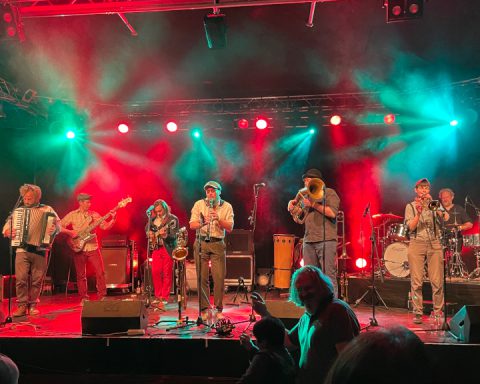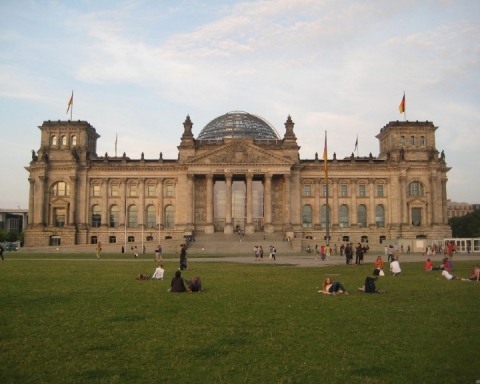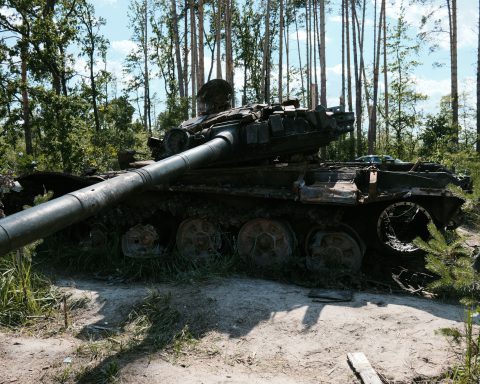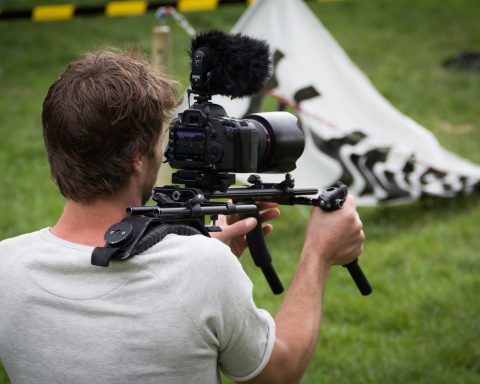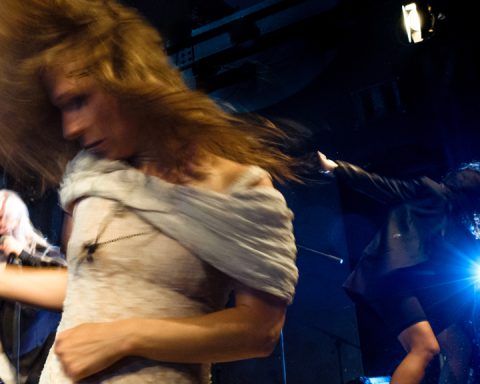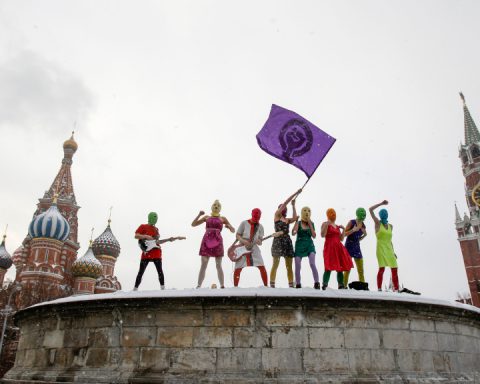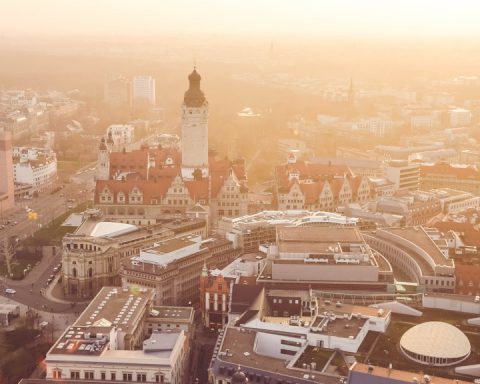I just came by train from Trento to Leipzig. Fairly evenly distributed over the train were dark-skinned men. Also where my seat was were two. Since there was no empty compartments nearby, I went in. They were young; in T-shirts and jeans. The smell was at first overpowering but with the door open, it disappeared.
One spoke Italian, the other English. He offered to lift my suitcase to place it on the shelf. I said no, thank you. He asked again. “Are you sure?” I asked, it is very heavy.
My Italian being ridiculous, I still managed to learn that my neighbor to the left spoke Italian so well because he had been in Italy for three years. But I gave up shortly after that and switched to English.

The young man sitting by the window across from me to the left (the one who offered to put up my suitcase) said he was traveling from Verona where he was in a refugee camp with 10 people to a room with light constantly on. Where he could not sleep. Ten people to one room. And the lights on.
He hurt, he said, from how badly Italians treated him just because he was black. His hands moved to and down his chest when he was saying that the Italians would move away if you sat down next to them, he showed how, and the other man nodded.. They move away from blacks. They say “no”, like you did, but you explained why. Blacks? I said, and I then looked from one to the other and to my own outstretched arms. My neighbor to the left also looked and we laughed and marveled a bit. We were all on the dark side, but very different colors.
And nobody to talk to, he continued.
Here came a bit from both men on how different religions and differently colored groups live together back home (now that was a true surprise – not what I am taught by the press or by other sociologists). In Italy they did not feel welcome, while in their countries everybody was. They collaborated in telling me this – one talked, the other nodded. I thought they were friends.
The man to my left said Denmark is where he would like to be. I tried to explain something about unemployment and sourly Europeans. In Italian, but I had to give up.
The man by the window said he had slept because he already lost hope that he could speak to anybody, his neighbor speaking Italian. But then I came and spoke English. He repeated this twice or thrice.
He was thirty already, he said, and wanted to move on with his life. To work. But they do not get to work in Italy. He would like to live with his wife and child. He can do hair very well, he said.
He had run for his life because a society, “you understand, society?” he asked, was after him because he had not paid protection money. He went through a West African country, then through a desert where he slept under the skies and was then picked up along with others by some sort of huge truck. He drank his own piss because they were kept in for days without food and water. Did I understand him right? It must have been a container. They were let out in North Africa, as it turned out, where he said they were given work but hardly any money. And when they were paid, they got robbed. He has scars on his neck after one such robbery. He did not say how he moved on from there.
From time to time another man would come by and exchange a few words with the guy who spoke Italian. The English-speaking guy had later spoken on the mobile a couple of times too.
I said “bella Italia” and admired the views – they are amazing in this area, when one moves along the valley to pass the Alps. My neighbors did look a couple of times too. I thought how strange it was to share a landscape with somebody who is not a tourist or a local, for whom quite other concerns are burning. I thought they were both in the Verona camp and were making a trip to escape killing boredom. I asked if it is legal to move from the camp. “No, it is illegal, but sometimes you have to act and you cannot pay attention to the law,” said the man by the window.
A man and a woman went through the train before Innsbruck and merely asked all dark-skinned men where they are from. I was surprised. So I found out my Italian-speaking neighbor was from South Asia and the other one was from West Africa.
We slept a bit, other passengers – mostly Austrians and German tourists returning from their hiking trips – got in. The elderly couple that joined us waved for the door to be kept open. The man from West Africa asked whether we are in Austria or Germany. I had to ask the man in the hiking boots. It was all so picturesque. Austria, he said, oozing general disapproval. We slept a bit more.
In Innsbruck two policemen came. The man from South Asia was gone – I cannot remember how. Through the window I could see a small group of mostly Asian-looking men gathered on the platform. One of the two policemen had leather gloves on. I could see my neighbor and his friend who had come by earlier too. I became worried, but seemed alone with this, so the feeling passed.
A big young blue-eyed blond in an Octoberfest dress sat down between the elderly German hiker woman and the man from West Africa. She was bubbly. A young boy sat down next to me. The corridors filled with men in Bavarian Lederhose. They were all going to some festival. They filed out after a while. It became quiet again.
I asked about the region he comes from. After he told me, I replied, “I know about the proud warriors of that region, and the bronze sculptures, and the beautiful queen with beauty-scars on her face.” His hands showed the scars and he smiled to the rhythm of my words. We slept a bit again.
Then in Rosenheim, all the sudden there were a lot of police and commotion. They were coming in the train. On the platform, mostly African men started appearing. My neighbour woke up. He sleepily asked if we were in Germany. “Yes,” I said. He got up and hurried out. He joined the others on the platform and steps leading down.
This took me by surprise. I thought he was going to Munich; perhaps to meet friends. It did not occur to me that he was in fact escaping the Italian camp and the Italians who moved away from blacks.
The train waited.
I leaned over the railing and said in jest: “But you said you would take down my suitcase in Munich. What will I do now?” He offered to put it down now before the train left. Now THAT was surreal: a refugee offering to walk back into the train to take my suitcase down – it was highly unlikely with all the police presence. I smiled and waved it off with my hand.
Some passengers were getting noodles at an Asian place facing the platform. Some looked on. An all-male party in our wagon was getting merrier and louder.
I went up to one of the policemen and asked what would happen next. He wore blue plastic gloves. “They will be disinfected,” he said. I asked again in disbelief. “They will be disinfected,” he repeated (I do not think they all wore such gloves) “And then?” I asked. “Then they will be distributed across Germany.”
I said: “Austrians seem to be taking Asians and you, people from Africa from the train.” “Well, we cannot take them all, you know. There are agreements about sharing.” (But he did not say whether these included which countrymen get to stay where).
A female passenger standing next to me marveled at an ad hoc table set up on the platform where a young policewoman put away some papers.
Three more African men in suits, shoulder bags (for laptops?) and with suitcases on wheels were escorted by the police to where the others were already standing. The same female passenger said, “They have suits on,” – not quite our image of refugees, was it.
An elderly woman came up to the railing to exchange a few more words with one of the men. They were smiling at each other, seemed to have become friends during their time on the train.
I was worried about my fellow passenger. He was now sitting on the steps. While others were standing and looking bright-eyed around, he had his face in his hands. He looked exhausted. The others let him know I wanted to talk to him. He went up to the railing, so I could say that he should say Germany was the first land in which he got off the train. (I guess that made me the second elderly woman talking to one of the men.) I was not sure he knew the EU rule which says that the first country in which your feet touch the ground is responsible for you. If the police got him to say he had already been in a camp in Italy, they would send him back. I was not sure he understood what was at stake. Had I made it clear enough?
I wondered aloud whether he would not be better off if he’d continued to Munich.
The female passenger next to me said in Munich there were huge refugee camps. Rosenheim seemed better, smaller.
I was glad I’d managed to offer the man from West Africa my yogurt. I was sad I’d wanted to wait until Munich to give him some money. Now it was too late. But it worries me that I wrote up my phone number for him. What if he calls?
(This piece was drafted on 13.09.2015, a day before the borders were closed)

